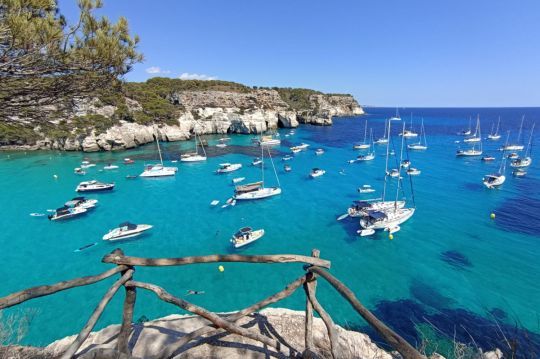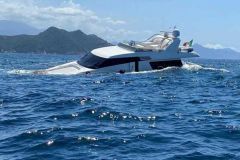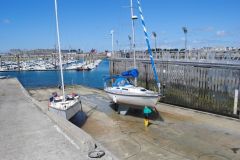The sea is both a space of freedom and a fragile ecosystem. Setting off on a long cruise not only means experiencing an extraordinary adventure, but also becoming aware of the impact that each piece of waste left behind can have on the oceans. Managing waste on the open seas, where infrastructure is lacking and resources limited, is becoming a crucial issue for sailors keen to preserve their playground. Faced with this challenge, yachtsmen are adopting new practices and technologies to limit their ecological footprint. This article proposes concrete solutions for reducing, sorting and managing waste on board, while maintaining environmentally-friendly navigation.

1. Reducing waste at source: the art of minimalism at sea
The best way to manage waste is to produce none at all. This is where the art of minimalism comes in. Before you even embark, it's essential to think about what you're bringing on board. Choose sustainable, bulk products and avoid superfluous packaging. Experienced sailors like Sophie and Julien, who have been cruising the Caribbean, swear by cloth bags and reusable jars to replace single-use plastic. This simple habit can reduce the volume of waste produced by 20-30% over a long crossing. Beyond equipment, adopt a "zero waste" approach to all aspects of daily life at sea: make your own eco-friendly household products, use reusable filters for coffee, and carry refills for your cosmetics and food products.
2. Sorting and storage: anticipating stopovers for responsible management
Although recycling is often impossible on the high seas, rigorous sorting on board allows recyclable materials to be stored until the next port of call. In French Polynesia, some sailors choose to transport their recyclable waste to islands equipped with sorting centers, such as Tahiti. This requires strict organization of space on board, but reduces the environmental impact, particularly in protected areas. Experienced sailors recommend the use of manual compactors to reduce waste volume by up to 70%. This practice, adopted by many yachtsmen, optimizes the space available on board while facilitating storage until arrival at an equipped port of call.

3. Technological solutions: between water treatment and dry toilets
Compliance with international standards, in particular the MARPOL Convention, is essential for all yachtsmen. These rules govern the management of wastewater and solid waste at sea. Some blue-water cruisers, especially those equipped for polar expeditions, feature grey and black water treatment systems, ensuring that nothing is discharged into the sea untreated. For sailors aboard more modest yachts, dry toilets are an increasingly popular solution. Not only do they reduce environmental impact, they also offer greater freedom when mooring in remote areas.

4. Adopting a zero-waste approach: trends and innovations for the future
More and more yachtsmen are joining the "Zero Waste" movement, drastically reducing their on-board waste. This concept implies favoring durable and repairable objects, making one's own products, and adopting a minimalist approach. Recent innovations, such as biodegradable materials and compostable packaging, make this approach even easier. Some yachtsmen collaborate with organizations dedicated to preserving the environment to promote sustainable practices at sea. You could even consider taking part in ocean clean-up expeditions, thus actively contributing to the protection of marine ecosystems.

Browsing without a trace
Sailing while respecting the planet is a delicate balance between organization, ethics and innovation. Every sailor can contribute to this dynamic by adopting simple but effective practices to limit their impact at sea. By reducing, sorting and managing waste efficiently, every sailor becomes an agent of change. Adopting an eco-responsible approach at sea requires preparation and a strong will, but the results are well worth the effort. As the famous yachtswoman Ellen MacArthur so aptly put it: "The sea is our ultimate exploration ground, but it depends on our choices. "Let's respect it so that future generations can in turn enjoy it.













